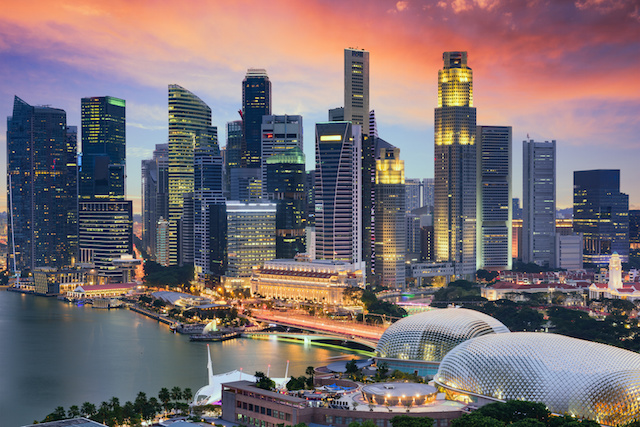Singapore property guide for expats

Moving to Singapore from the UK is a big step, but one that many expatriates make each year. It’s one of the best destinations for quality of life, with a strong economy and good career prospects.
One of the big decisions to make is where you are going to live. There is a choice of prime locations around Singapore, as well as the option to rent or buy a property. Your employer may give you an accommodation allowance as part of your package.
Here is our Singapore property guide for expats, outlining the basics.
Types of property
Most accommodations in Singapore are condominiums (condos) or apartments, with private condos being the most popular choice for British expatriates. Condos are luxury serviced apartments with access to a range of shared amenities. This often includes facilities like a swimming pool, gym or tennis court, which is perfect for families and individuals. Condos are spacious, and the communal areas are well looked-after. They are good for making friends and business connections due to the thriving expat communities within the complexes.
Private apartments are also available and range from small one-bedroom flats to larger accommodations. They are generally lower in price, but they don’t come with access to the shared facilities.
While private condos and apartments are the most popular types of property, there are other options. ‘Landed’ property is an accommodation where the owner of the residence also has the title deeds to the land it sits on. It’s rare these properties come on the market, so they are highly sought-after. As such, Singaporean citizens have priority to buy. While expatriates may be able to rent one of these homes, they are restricted when it comes to buying them.
These landed properties include ‘cluster houses’, designed in a uniform fashion within a gated estate. They can offer similar shared facilities as condos. These are less common than condos and other types of landed property, but they are quite attractive.
Rent or buy?
The majority of expats in Singapore rent a property. It is best to use a reputable agent based in Singapore who will be able to negotiate on your behalf. The process is quite straightforward. You’ll need to provide a copy of your passport and your employment pass. You will also need to supply a Letter of Intent, which outlines how you intend to use the property and any requirements of the landlord. The landlord must sign this letter before issuing you with a tenancy agreement.
There are some costs to take into consideration. For example, the tenancy is subject to stamp duty and must be validated by the Inland Revenue Authority. Usually, the tenant pays associated costs. You will also need to pay a certain amount of rent in advance, a security deposit and may even need to give a deposit to some utility providers.
Buying a home is also quite straightforward, though there are restrictions on certain types of property. Restrictions apply to landed properties, shophouses (homes above shop outlets), HDB apartments (built by the Housing Development Board), executive condos (which are different to private condos) or an apartment in a building of less than six levels. These types of properties require prior approval and a formal application made through the Land Authority.
The most common property purchases tend to be private condos or apartments in high-rise buildings with more than six levels. These do not require prior approval. You will need to pay the expected agency and solicitors’ fees, as well as both standard Stamp Duty and Additional Buyer’s Stamp Duty.
Whether you buy or rent, we recommend you use a reputable agent, with a good understanding of the market in Singapore.



